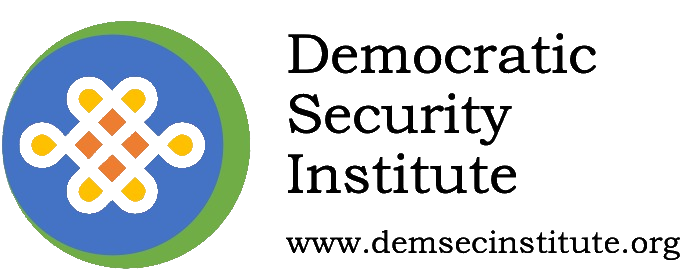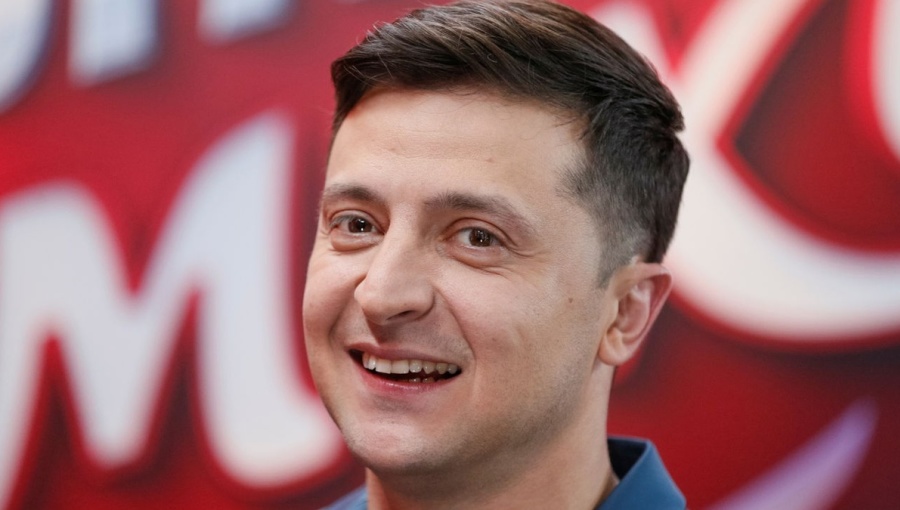On April 21, Ukraine held the second round of presidential elections where Ukrainian citizens had to choose between the incumbent president Petro Poroshenko and the popular comedian-turned-politician Volodymyr Zelenskiy. With 73 percentof the vote, Zelenskiy secured a landslide victory across an absolute majority of Ukrainian regions. Zelenskiy is widely believed to reflect the voices of so-called “protest voters” – those who are dissatisfied with the way the state, from the economy to the public sector, is performing. Volodymyr Zelenskiy, whose political and ideological preferences remained intentionally vague, rode in on a wave of public dissatisfaction with incumbent President Petro Poroshenko. He offered himself as an anti-system alternative – honest and unstained by political experience. Although he is allegedly supported by powerful Ukrainian oligarch and Poroshenko’s arch-rival Igor Kolomoisky, Ukrainian voters obviously believed that Zelenskiy was the lesser of two evils.
To understand this political choice, one has to look at the political and social fabric of Ukrainian society. Five years after the events of Maidan, the annexation of Crimea, and the onset of the Russia-supported war in Donbas, Ukraine is on the thorny path of reforms, trying to balance its wartime needs with democratic development. Poroshenko, who himself was elected five years ago in the first round, was given carte blanche at the time to reform the system and to completely reset Ukrainian politics. In some areas, his performance was promising or outstanding, given the dire conditions of the Ukrainian state at war; in others, results were minimal – as in the oft-discussed failure of anti-corruption reforms.
Poroshenko’s electoral slogan “Army, language, and faith” was based on the presumed state building achievements under his tenure. Firstly, in five years the Ukrainian army was rebuilt into a force capable of resisting Russian aggression. Secondly, the position of the Ukrainian language was considerably strengthened, including through the adoption of the language law in April 2019. Finally, autocephaly was granted by the Patriarchate of Constantinople to the long-adrift Ukrainian church, making it ecclesiastically independent from the Russian church, which has been celebrated as a “second independence.”
These issues are important for many Ukrainian people, but evidently insufficient to most voters. Instead, ordinary Ukrainians protested against democratic shortfalls and extended economic poverty – as the majority of households in Ukraine felt they had become impoverished, despite the much-praised macroeconomic stabilization of the state.
In Ukraine, which is a parliamentary presidential republic where the president is responsible mainly for foreign and security policies, public frustration was arguably channelled against Poroshenko personally, even for problems that were not be directly attributable to him. There has been a widespread belief that Poroshenko tolerated the system and turned a blind eye to the misdeeds of his associates even if he did not necessarily directly benefit, such as in the case of exposed corruption schemes in the Ukroboronprom state enterprise in the defence sector.
Zelenskiy’s campaign embodied the public outcry against everything the authorities had failed to deliver. His major pledge before the elections was to confront the internal foe: the clientelist, corrupt, and dysfunctional regime. Yet, his stance on the external enemy – Russia – and how to terminate the war and de-occupy the seized territories was much less pronounced. Based on Zelenskiy’s pronouncements, current policies to withstand Russian aggression while pursuing Ukraine’s European and Euro-Atlantic course will continue.
Zelenskiy has emphasized his fondness for “direct democracy,” and seemed to be content with delegating the task of developing policy positions to public input; at the presidential debates he confronted Poroshenko with questions he had collected from the people online, and is looking to recruit his team, including his future spokesperson, through social media. Indeed, Zelenskiy’s reliance on “the voice of the people” has been a political novelty. Yet while this tactic appears to have paid off in an election win, the exigencies of wartime statecraft will require him to make snap decisions and major judgments without the benefit of public input; will he rise to the occasion, or feel rudderless?
A grand narrative underpinning the victor’s electoral campaign was “tiredness from war”. Volodymyr Zelenskiy skilfully capitalized on this public sentiment and maneuverer between diverse groups of the Ukrainian population who long to see the armed conflict in Donbas over – many of them with conflicting opinions about the terms on which this settlement should be made. Zelenskiy once described reaching a “compromise” with Russia as a technical issue, subject to negotiations. He has also implied that many of Poroshenko’s defence-related measures were unnecessarily provocative. For instance, during the presidential debates he asked Poroshenko why the latter had sent Ukrainian sailors “to die” in the Azov Sea, referring to the incident in late November 2018 when the Russian military rammed and seized Ukrainian vessels and detained Ukrainian sailors as hostages.
Zelenskiy’s first days in office could prove sobering. Paradoxically, President Zelenskiy might find himself locked in the same wartime conundrum and keep to Poroshenko’s course by default, which he criticized as feeble. He might find himself finally admitting that the war will not be over tomorrow simply due to a new team’s clever decisions. He will be forced to articulate his stances clearly, some of which are likely to encourage some of his supporters, but alienate others.
Russian President Putin has already tested the Ukrainian President-elect by issuing a decree allowing the people of the occupied territories of Donbas to receive Russian passports by a simplified procedure. Zelenskiy, though not yet in office, responded harshly via written message wherein he described a Russian passport as a liability for its holders as they can be detained and persecuted for dissent. In return, he offered Ukrainian citizenship to people supporting democracy, in a potential bid to cast Ukraine as a regional model – with himself as its avatar.
Time will show how the new President performs; whether Zelenskiy uses his strong mandate to enact major reforms successfully, if his administration is capable of keeping afloat under the pressure of high public expectations, and if he backs up his promises with concrete results. Merely negating the previous administrations’ steps will not suffice, offering alternative and more efficient solutions would be better. Most likely, the political situation in the short term will be volatile. It’s possible, and even likely, that a public show of dissatisfaction will be displayed again during the parliamentary elections scheduled for this coming fall.
Dr. Maryna Vorotnyuk is an EDSN fellow and a research fellow at the Center for European Neighbourhood Studies of the Central European University, Budapest. EDSN is an international research fellowship project of the Center of Social Sciences, Tbilisi, and made possible with the support of the National Endowment for Democracy.

